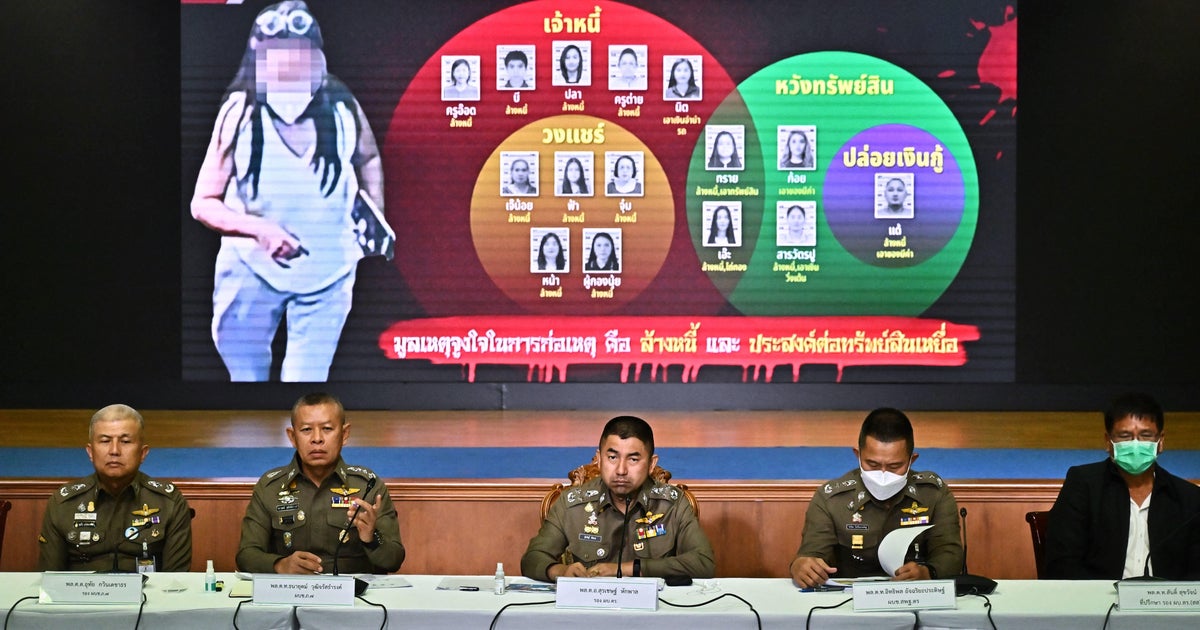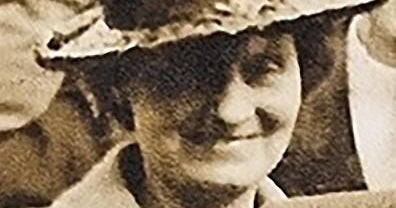Supreme Court grapples with case of Richard Glossip, death row inmate who's had 3 last meals
Washington — The Supreme Court on Wednesday wrestled with a bid by Oklahoma death row inmate Richard Glossip to toss out his conviction and grant him a new trial, an effort that's bolstered by the state's Republican attorney general who has raised issues with prosecutors' actions in the proceedings.
Arguments in the case known as Glossip v. Oklahoma came nearly a decade after the defendant unsuccessfully challenged the state's method of execution, and after the high court has intervened to stop his execution twice before. Glossip, 61, has faced nine execution dates in all and eaten his "last meal" three times.
His most recent reprieve came last year, when the Supreme Court agreed to block Glossip's death by lethal injection. Months later, the justices took up his bid for a new trial after Oklahoma's top law enforcement official argued the defendant's conviction and sentence should not stand.
At oral arguments before the Supreme Court, lawyers for Attorney General Gentner Drummond and Glossip, both represented by former solicitors general, urged the justices to grant the defendant's bid for a new trial, arguing in part that his due process rights were violated. The court appointed an outside lawyer, Christopher Michel, to argue in favor of upholding Glossip's conviction and death sentence.
Over the course of nearly two hours, the justices sparred with lawyers over whether information from prosecutors' notes about their key witness that was uncovered by the state would have been enough to impact the jury's guilty verdict rendered two decades ago, and whether the Supreme Court should even be deciding the case at all.
Drummond, a Republican, has argued in court papers that evidence had been suppressed and revealed not only that prosecutors' central witness against Glossip lied on the stand, but that they "knowingly elicited" his false testimony and failed to correct the record.
"Our system of justice places awesome powers and responsibilities in the hands of prosecutors. When those prosecutors themselves recognize that they have overstepped, that judgment cannot be dismissed as just another litigation position," Drummond told the Supreme Court in a filing.
Glossip's conviction and the attorney general's bid for relief
Glossip was convicted in the 1997 killing of Barry Van Treese, the owner of the Oklahoma City motel where he worked. He was found guilty in two different trials (his first conviction was overturned because of ineffective assistance of counsel). In both, prosecutors relied on the testimony of his co-defendant, Justin Sneed, who claimed Glossip paid him $10,000 to murder Van Treese.
Sneed admitted to robbing and bludgeoning Van Treese and was sentenced to life in prison. Glossip has denied involvement in the murder and maintained his innocence.
During his second trial, Sneed told the lead prosecutor that he had never seen a psychiatrist, but was given lithium after he was arrested. Years later, in 2022, the state unearthed handwritten notes from the prosecutor in a banker's box, which Drummond said called into question Sneed's credibility as a witness.
The notes indicated that Sneed told the prosecutor he was given lithium after seeing a jailhouse psychiatrist and was diagnosed with bipolar disorder, according to court papers. But neither his diagnosis nor treatment by the psychiatrist were disclosed to Glossip's defense team, indicating that the prosecutor elicited false testimony on the matter, Drummond wrote in court filings.
In light of the findings, the attorney general disclosed the box's materials to Glossip and hired an independent counsel to review the case. The examination, which concluded in April 2023, found that if the defense knew that Sneed had been diagnosed as bipolar and prescribed lithium, they could've "impeached Sneed's credibility, memory and truthfulness." The independent counsel concluded that Glossip was "deprived of a fair trial."
The state agreed that some of the errors committed during the trial rendered Glossip's conviction and capital sentence flawed, and requested the Oklahoma Court of Criminal Appeals set aside his conviction and order a new trial.
But the state court denied the relief and ordered the state to execute Glossip. A request for clemency to the Oklahoma Pardon and Parole Board also failed.
Glossip turned to the Supreme Court, which in May 2023 granted a stay of his execution and, in January, agreed to take up his case. Justice Neil Gorsuch has recused himself, likely because of earlier proceedings when he was a judge on the U.S. Court of Appeals for the 10th Circuit.
If the Supreme Court deadlocks 4-4, the Oklahoma Court of Criminal Appeals' decision upholding Glossip's death sentence would stand.
The Supreme Court's arguments
Much of the discussion before the justices focused on whether they should be hearing the case at all, or whether the Supreme Court lacked the jurisdiction to do so because the Oklahoma Court of Criminal Appeals based its decision denying Glossip relief on "adequate and independent" state-law grounds.
Michel, a former clerk to Chief Justice John Roberts and Justice Brett Kavanaugh, told the justices that the state court correctly rejected Glossip's claims. Justice Samuel Alito appeared skeptical of the idea that the case raised an issue of federal law for the Supreme Court to decide.
Justice Clarence Thomas repeatedly questioned lawyers for both sides about the prosecutors' notes from a discussion with Sneed and whether they were ever interviewed about what they meant in referencing "lithium" and "Dr. Trumpet," a misidentification of jail psychiatrist Dr. Lawrence Trombka.
Thomas told Seth Waxman, who argued on behalf of Glossip, that an interview with the two prosecutors to discern the context of their notes would be "central," and lamented that their reputations are "being impugned."
"I couldn't make heads or tails" of the notes, he said, noting that one of the prosecutors had explained that they were about a conversation Sneed had with the defense. If that is the case, Thomas said, "I don't see how there's any basis" for federal law violations governing criminal proceedings and the disclosure of evidence.
"Why wouldn't they be interviewed?" Thomas asked Paul Clement, who argued for Drummond. "We don't even have materials from them except" a friend-of-the-court brief from Van Treese's family.
In that filing, Van Treese's wife, son and sister contested the notion that the prosecution concealed information from the defense. Instead, they said prosecutor's notes reflect Sneed recounting what the defense team had asked him.
Alito also highlighted the brief from Van Treese's family, saying it provided a "pretty compelling countereading" to Glossip and Drummond's interpretation of the prosecutors' notes.
Several of the justices pressed lawyers for both sides about the value of the information about Sneed's bipolar diagnosis by the psychiatrist and treatment with lithium, and how that may have impacted the jury's view of case.
"Do you really think it would make that much of a difference to a jury?" Roberts asked.
Kavanaugh asked Clement to explain how the outcome of Glossip's trial would've been different. Later, he told Michel he was struggling with his argument that it wouldn't have mattered to the jury had they known that Sneed was bipolar and lied on the stand.
"I'm having some trouble on that last piece of the argument, if we get there, understanding that when the whole case depended on his credibility," he said. "Would it have made the conviction more likely if the jury knows, not only that he has an incentive to lie and that he's lied on the stand and that he's bipolar, therefore creating all sorts of avenues for questioning his credibility?"
Justice Elena Kagan told Michel "your one witness has been exposed as a liar."
"The critical question that a jury is asking is, do I believe this guy in everything he says, and particularly, do I believe him when he points the finger at the accused?" she said.
Waxman told the justices that Glossip was "convicted on the word of one man," while Clement called Sneed an "indispensable witness" for the state.
Justice Ketanji Brown Jackson suggested additional proceedings be held, given the "pretty significant factual questions that are still up for debate." Neither side, though, favors an evidentiary hearing.
The case has divided state attorneys general and local and federal prosecutors. In one filing with the Supreme Court, attorneys general from seven states are calling for Glossip's conviction to be upheld. They said the Oklahoma Criminal Court of Appeals, the state's court of last resort for criminal matters, based its ruling on state law and should be respected by the federal courts.
But the group of prosecutors is calling on the Supreme Court to grant Glossip relief, arguing that he is at "imminent risk" of being wrongfully executed.
"Prosecutions must be premised upon an honest and completely transparent record to protect societal confidence in the verdict and the death sentence," they said in a filing in support of Glossip.
A decision in the case is expected by the end of June 2025.




